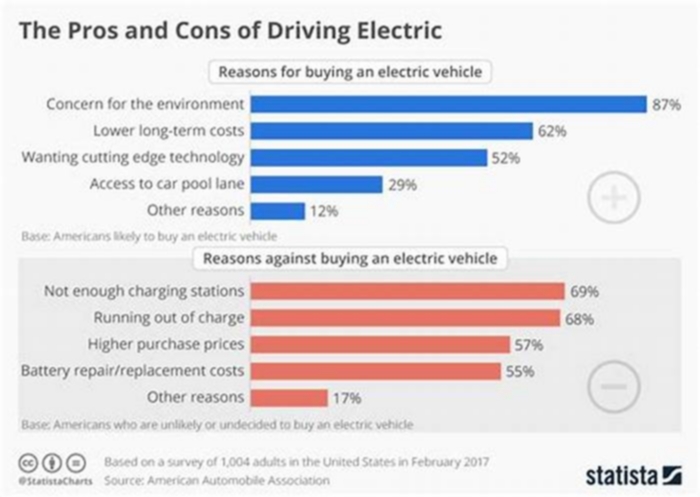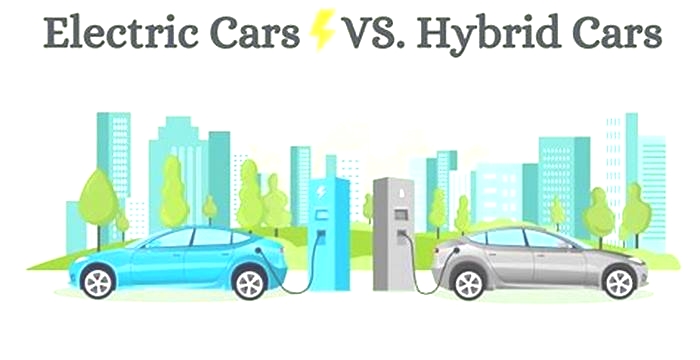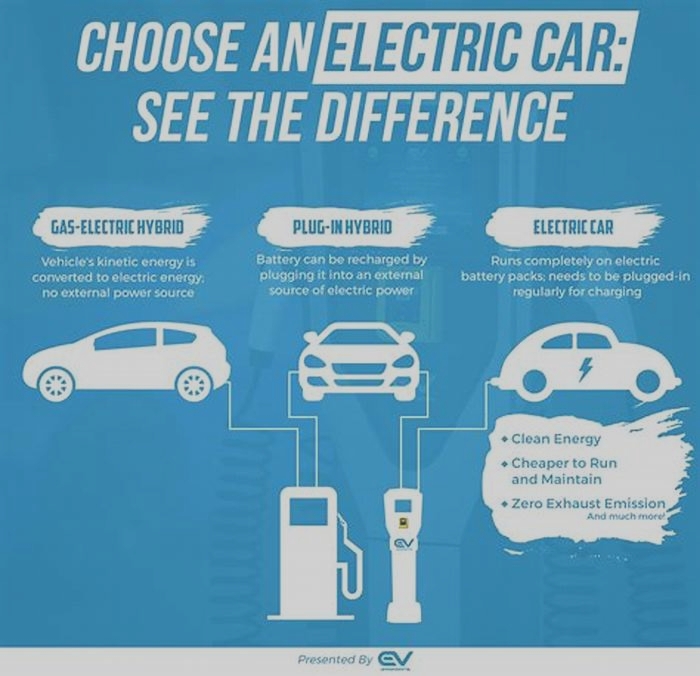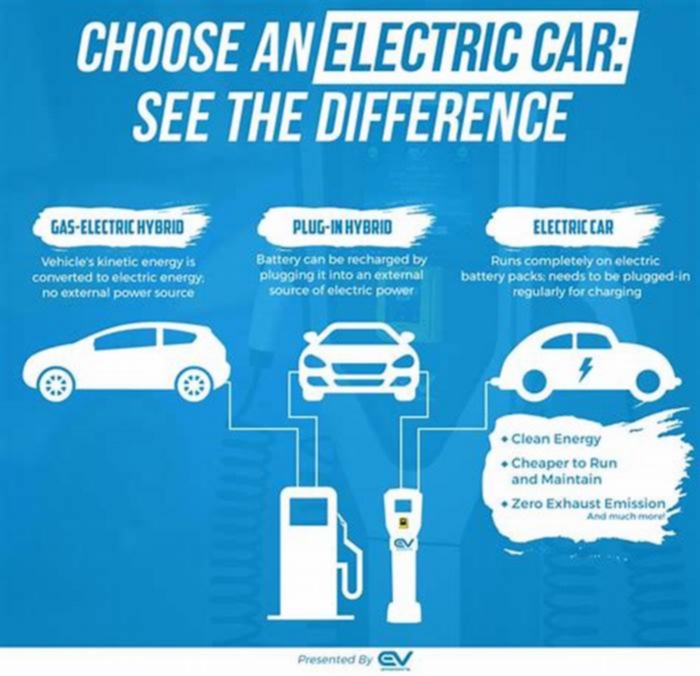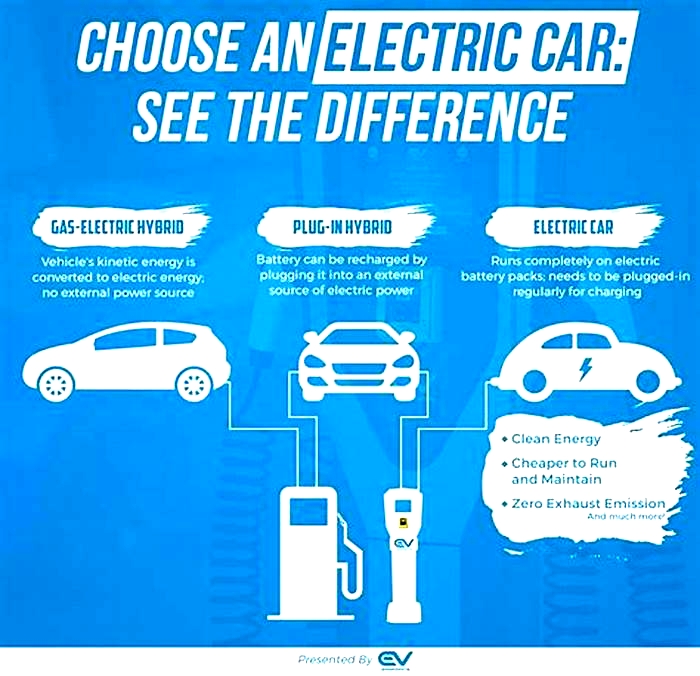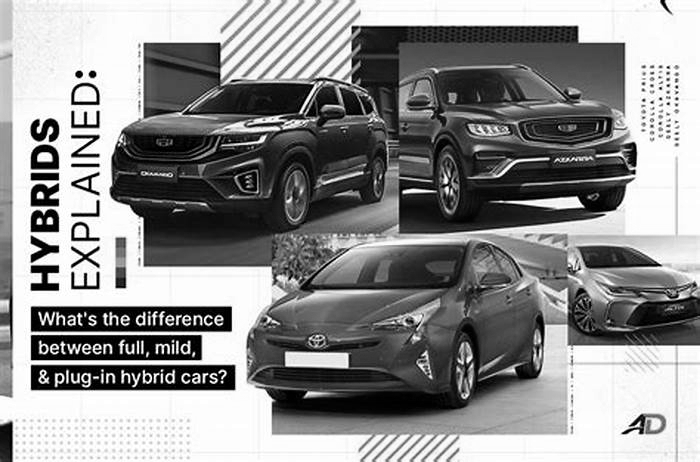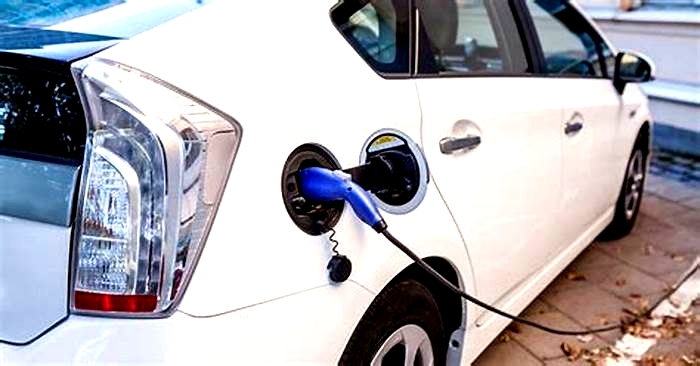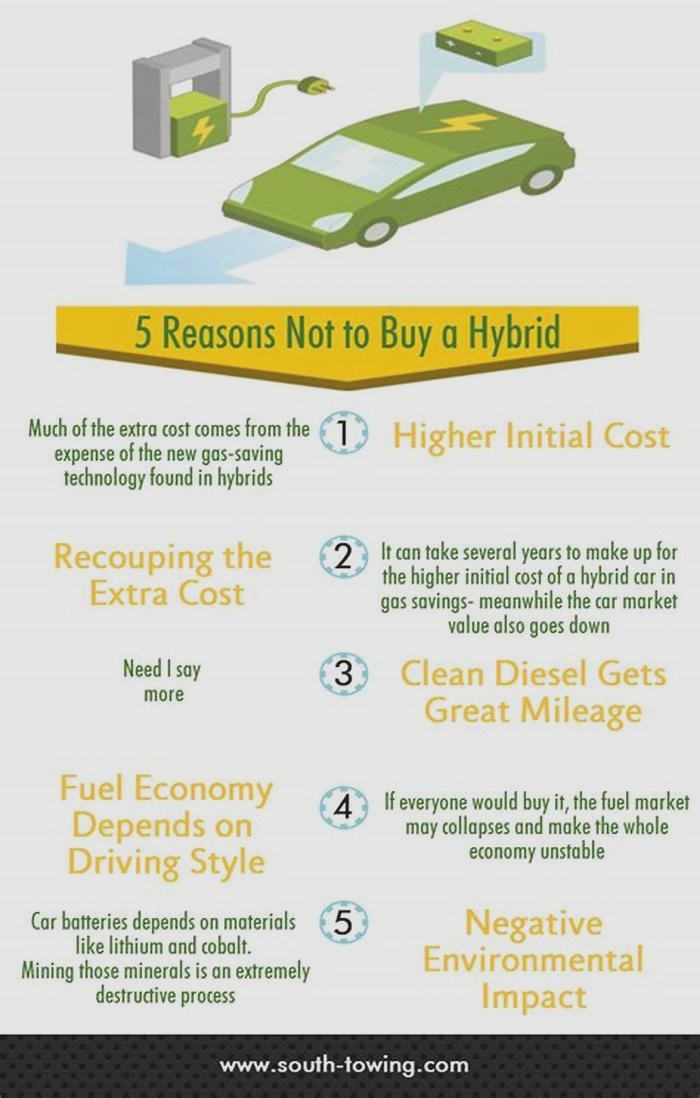What are the pros and cons of a hybrid
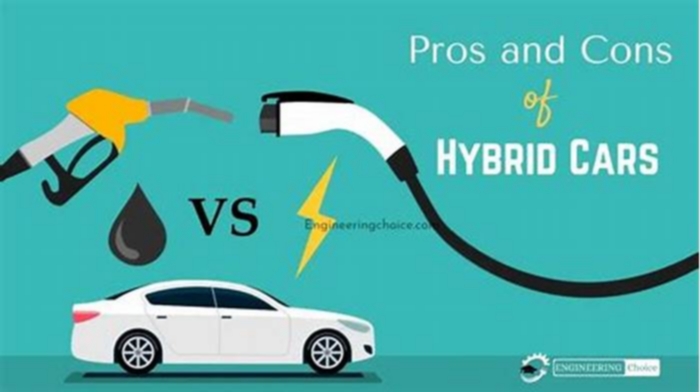
Pros and cons of hybrid cars: What you need to know
Hybrid cars are environmentally friendly (compared to gasoline-powered cars)
There are many negative environmental impacts of using gasoline-powered vehicles: for one, these cars emit carbon dioxide and other greenhouse gases straight from their tailpipes. Over time, this can have a large impact on the environment: according to the U.S. Environmental Protection Agency (EPA), a typical passenger vehicle emits 4.6 metric tons of carbon dioxide annually, plus other pollutants like methane and nitrous oxide all greenhouse gases that contribute to global warming. Even before the gasoline hits your engine, extracting the fuel to use as energy has a number of environmental costs to consider as well.
With hybrid cars, you have two options for fuel: gasoline or electricity. If you run your hybrid car solely on gasoline, you'll still emit greenhouse gases from your tailpipe, but less so than you would with gasoline-only counterparts because they're more fuel-efficientsome hybrids allow for more than 50 miles per gallon! This means you'll use less gas to travel the same distance and therefore emit less pollution.
However, if you buy a hybrid, it's pretty likely that you'll also use electricity to run your car, especially if you buy a plug-in hybrid. When doing so, you will have no direct tailpipe emissions. That said, how environmentally friendly your commute is in a hybrid car will vary depending on where your electricity comes from while more and more of our electricity comes from renewables each year, fossil fuels continue to generate the majority of electricity throughout the country. The source of your electricity (i.e., your electricity mix) impacts your overall transportation emissions, known as well-to-wheel emissions. If you're curious about what this means for you, check out this tool from the Department of Energy (DOE): they have an interactive tool that displays the annual emissions per vehicle based on a state's electricity mix.
You can save money with a hybrid car
With a hybrid vehicle, you can avoid making frequent trips to the gas station and paying high charges to fill up your tank thanks to efficient engines and the option to switch to electricity for fuel. However, it can be difficult to estimate just how much you can save since savings depend heavily on your own driving habits, your reliance on gas for power, your area, and more. For some numbers, take a look at Edmund's "Gas Guzzler" calculator: this can help estimate how much you can save on gas by switching to a hybrid based on your state, the car, and how many miles you drive.
In addition to savings on gasoline, the federal government currently offers a favorable tax credit if you purchase a plug-in hybrid vehicle. Depending on your tax status and the type of car you choose, you can save as much as $7,500 with this incentive. (Note: regular hybrids are not eligible for this incentive). Before you purchase a hybrid car, also check to see if there are any state or local incentives available to help decrease your costs even further.
Hybrid cars are quiet
Hybrid cars are much quieter than traditional gasoline-powered vehicles thanks to their electric motors. In fact, they're so quiet that the U.S. had to pass laws to require both hybrids and electric vehicles to make audible sounds when traveling at certain speeds because of safety concerns.
(Author's note: have you seen the episode of The Office where Andy pins Dwight up between the fence and his car? He's able to sneak up and catch him off guard because, as Oscar points out, a Toyota Prius remains completely silent when driven under five miles per hour.)
Hybrid cars often require less maintenance
Because hybrid cars have two sources of power (the gas engine and the electric motor), there is less regular wear and tear on the car's engine. This often means less need for oil or coolant and fewer routine maintenance costs than cars that rely solely on combustion fuel engines. Admittedly, maintenance costs can vary depending on the type of hybrid car you have, so make sure to do a bit of research on the specific make and model!
You won't experience "range anxiety" with a hybrid car
One of the biggest downsides of all-electric vehicles is "range anxiety," or the fear that you won't have a high enough charge to make the distance from one charging station to another, heightened by the lack of electric car charging stations in some areas. You don't have to worry about this with a hybrid vehicle: when your battery runs out of electricity, the car will switch to using gasoline in your tankand there are still plenty of gas stations around to refuel!
CarBuzz
Hybrid cars are becoming increasingly popular, and they can be an excellent intermediate step for those who want to explore electrification without buying a fully electric vehicle yet. With several types of hybrid car available, from mild hybrid to plug-in hybrid, there is a wide variety of choices available no matter what your lifestyle and driving needs.
But what are the pros and cons of hybrids? When does a hybrid suit your lifestyle, and when is it simply unnecessary? To answer these questions, we first need to understand the basics of hybrids.
Types of Hybrid Vehicles
There are three main varieties of hybrid cars currently available on the market:
- Mild hybrid cars are the newest type of hybrid on the market and are rapidly gaining in popularity due to the fact that many cars you don't think of as hybrids use this type of powertrain. The BMW M340i, for example, supports its inline six with mild hybrid propulsion. Their main source of power is their traditional internal combustion engine. The electric motor (which has a battery charged via regenerative braking and does not need plugging in) exclusively serves the purpose of improving fuel economy by assisting in pulling away from a standstill, coasting, and using the 48-volt hybrid system to power ancillaries (air-con, infotainment, etc) and remove this load from the combustion engine. A mild hybrid vehicle is as close as you can get to a traditional ICE car while still enjoying the improved fuel economy of a hybrid, so you get the best of both worlds.
- Full (self-charging) hybrids also use regenerative braking to charge the electric motor, but unlike a mild hybrid, they can drive for a short distance on electric power alone, which makes them an ideal candidate for a prospective buyer with a short, city-based commute. The regular Toyota Prius is an example of this type of hybrid.
- Plug-in hybrids, as their name suggests, can be plugged into an external electric power source and charged to function as a hybrid, but they can also utilize regenerative braking, coasting, and charging via ICE. Thanks to their larger battery, they have the ability to utilize for full-electric-mode driving.
Some Pros And Cons Of Hybrids
Like any other type of vehicle, hybrid cars also have some drawbacks; despite being hyped as the optimal choice to future-proof your garage, a hybrid car may not be well suited for everyone. Here are some pros and cons of hybrid vehicles that will help you decide on your next purchase:
PRO: Better Fuel Economy and Lower Running Costs
The first thing that comes to mind when thinking about the advantages of choosing a hybrid car is fuel savings. With fuel costs rising, for many prospective car buyers, having a fuel-efficient vehicle is high on the list of priorities. Thanks to the presence of the battery providing better fuel efficiency than you'd normally find in traditional gas-powered cars, a self-charging hybrid (such as the Toyota Corolla Hybrid) can easily achieve 50 mpg, and a plug-in hybrid (such as the Hyundai Tucson PHEV) can push that figure up to 80 MPGe. This is especially true if you have a short, city-based commute at low speeds since many hybrid vehicles are capable of fully electric driving for shorter trips, making your car even more fuel-efficient overall.
CON: More Expensive Up-Front Than Traditional, Gas-Powered Cars
The running and fueling costs of a hybrid vehicle may be lower than those of a conventional car, but there almost definitely will be a higher upfront cost. Even a used hybrid car will typically cost more than its internal combustion engine-only counterparts, thanks to the high cost of the rare metals needed for battery technology. Thankfully, this higher upfront cost will likely be offset after a few years of ownership since you'll save money in the long run when it comes to fuel and maintenance.
This will change as hybrid cars proliferate automakers' lineups as the default option, and like all technology, the more widely it becomes available, the more affordable it becomes.
PRO: Avoid EV Range Anxiety
The range anxiety issue that typically plagues electric car users is eliminated when driving a hybrid vehicle: no matter what your driving habits, from work commutes to long-distance road trips, you can always rely on being able to fill up your car with gas as you would do with conventional cars. Plug-in hybrids even give you the best of both worlds. If you live within a short commute of work, you can easily live an EV lifestyle, relying only on gas when you aren't able to charge or need to drive long distances.
CON: Needs Both Charging and Refueling
Of course, when away from home, filling up at a gas station will get you from A to B in a pinch, but for everyday use, it is important not to neglect the charging aspect; if the battery in a plug-in hybrid is left uncharged, the benefit of higher fuel efficiency is negated, and the vehicle becomes a heavier, less efficient gas-powered car, often with hampered performance. This has become prevalent where buyers have bought PHEVs for the tax benefits and driven them around on gas power alone.
PRO: Well Suited to City Driving
If your driving habits typically involve short city journeys, then a hybrid could be the perfect choice for you: with its potential for all-electric driving, lower tailpipe emissions, and lower maintenance costs hybrids can make excellent city runabouts. At low speeds and with low throttle loads, the electric motors handle most of your propulsion needs. Combustion cars typically at their least efficient when idling and creeping in traffic, and it's in these circumstances that a hybrid excels, switching off the combustion engine and using its electric reserves.
CON: Less Effective on Long-Distance Journeys
Long-distance drivers, on the other hand, might struggle more with hybrid ownership. Hybrids are not always aimed at being more efficient at higher speeds, so their benefit at highway speeds is often entirely negated. We won't say they're worse than a non-hybrid, but the price you pay may not be rewarded if this is the type of driving you do the most.
PRO: Performance Benefits
Hybrids are traditionally seen as environmentally friendly, often assumed to mean reduced performance. However, the addition of electrical augmentation actually means the potential for enhanced performance. Electricity produces more efficient horsepower and greater torque than a combustion motor right from a single rpm. Electric motors can be used as torque-fill to mitigate turbo lag and enhance performance when the torque from a combustion motor is weak. The new Toyota Prus, for example, is as quick in a straight line as a GR86.
CON: Battery Life Expectancy
All batteries lose capacity and start to degrade with regular use, and the battery pack of a hybrid car is no exception: if you have owned your car for a few years or bought a used vehicle, you may start noticing the battery lasting less and less in between charges. Battery tech is getting better, and long manufacturer warranties do ensure replacement in most circumstances, but as more hybrids populate the used car market, this is still something to be aware of.
Outside of warranty, replacement batteries are notoriously expensive. The upside is that a hybrid can still operate as a normal gas car when the battery is no longer effective, meaning it isn't bricked entirely.
PRO: Less Maintenance Needed
Battery replacements aside, hybrid cars may require less day-to-day maintenance than conventional vehicles: in a car with a regenerative braking system, the brake pads will usually wear down at a lower rate, requiring less frequent replacement. The engines often strain less, too, and runs less per 100 miles when electric driving is a factor, again reducing wear.
CON: Higher Repair Costs
The routine maintenance of a hybrid car is slightly different from that of a conventional ICE-only vehicle, and not all mechanics specialize in hybrid cars. While typical maintenance of the engine remains unchanged, and the battery and electric motors don't require a lot of maintenance in general, when something goes wrong with the hybrid systems, a regular mechanic may not be able to do what needs to be done. In these instances, higher repair costs due to specialist workshops are a reality, or at least workshops where mechanics have undergone hybrid-specific training.
PRO: Lower Emissions
And lastly, onto the environmental aspect: with the aid of electric power and more efficient fuel consumption, hybrids will almost always produce lower tailpipe emissions than exclusively gas-powered cars, so if emissions are an important factor to you, a hybrid car might just be the right choice.
CON: Still Uses Gas
Whether you're an electric evangelist or a combustion die-hard, the science is impossible to refute that an electric vehicle is a far more efficient means of propulsion than burning gasoline to power the wheels. While there is no such thing as a zero-emissions vehicle, hybrid vehicles get closer to that mark. Still, they are not as efficient as electric cars, and for some people, the concept of still using gas is a big no. However, because of their smaller batteries, an argument could be made that they have a lesser environmental impact at a supply chain level.
Yeah, we'll admit this isn't the strongest con out there, but for some, any gas at all is a negative.

